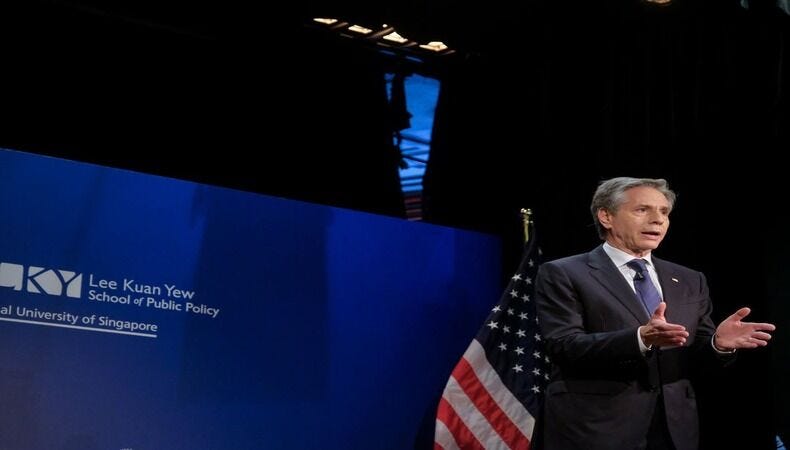
Lebanon is once again at the center of regional turmoil following the devastating pager blasts that killed 12 people and injured around 3,000. While the Israeli government has not claimed responsibility, many suspect its involvement, particularly due to the perceived targeting of Hezbollah agents. Yet, the collateral damage to civilians has amplified tensions in a country already struggling with political instability and economic crisis.
U.S. Response and Regional Tensions
U.S. Secretary of State Antony Blinken, speaking alongside Egypt’s Foreign Minister Badr Abdelatty in Cairo, emphasized that the United States was unaware of the pager blasts before they occurred. Blinken noted that the U.S. is currently gathering information and urged all parties to avoid further escalation in the region. His words reflect the U.S.’s cautious stance as it navigates the complex web of alliances and rivalries in the Middle East.
Despite the lack of an official claim, the blasts have triggered a wave of reactions from countries like Egypt and Turkey, both condemning any attempts to widen the conflict. Turkish President Recep Tayyip Erdoğan, in a call with Lebanese Prime Minister Najib Mikati, expressed solidarity with Lebanon while warning against the spread of violence beyond Gaza.
Lebanon’s National and International Response
Lebanese officials have reacted swiftly, condemning the attacks as an assault on national sovereignty. Information Minister Ziad Makary made it clear that Lebanon would bring the issue to the United Nations Security Council, underscoring the severity of the situation. Health Minister Firass Abiad confirmed that two children were among the victims, highlighting the tragic human toll of the blasts.
The international community has responded with both medical aid and political statements. Countries like Iran, Iraq, and Jordan have already sent much-needed medical supplies, showing the solidarity of regional allies. Iran, a known supporter of Hezbollah, has taken a strong stance, calling the blasts a “terrorist operation” and demanding international legal action. Similarly, Russia has labeled the blasts as a “hybrid warfare” tactic aimed at destabilizing the broader Middle East.
The Bigger Picture: Risks of Escalation
The pager blasts have exposed the delicate balance Lebanon must maintain in a volatile region. Already grappling with political and economic challenges, the Lebanese government now faces pressure from within and outside its borders. Domestically, the focus is on ensuring that humanitarian aid reaches those in need while keeping the fragile peace intact. Internationally, Lebanon must manage its relationships with key allies like Iran and Iraq while addressing global concerns about the potential for a broader conflict.
The situation is a test of Lebanon’s ability to navigate between powerful regional and global players, each with its own stakes in the country’s stability. As tensions simmer, Lebanon’s leadership will need to act with caution, balancing its national interests with the demands of an international community wary of further violence.
Looking Ahead: A Path to Peace?
With the international community calling for restraint and a thorough investigation into the blasts, much now depends on the diplomatic responses of the major players involved. Any misstep could push Lebanon deeper into conflict, a path the nation cannot afford. As aid continues to arrive and diplomatic channels remain open, the hope is that cooler heads will prevail and Lebanon can steer itself away from the brink of further violence.
In a region where peace is often fragile and fleeting, Lebanon stands at a crossroads, with the outcome of this crisis likely to shape its future for years to come.
